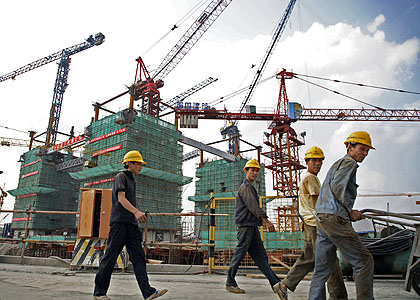China's reform 2014: What to watch for
- By Li Daokui
 0 Comment(s)
0 Comment(s) Print
Print E-mail China.org.cn, March 11, 2014
E-mail China.org.cn, March 11, 2014
The year 2014 marks the start of China's comprehensive deepening of economic reform. The central government has decided to seek progress while maintaining stability. Economically speaking, this shows the decision-makers' wish to solve social problems including employment without hampering the country's economic progress.
|
|
|
It may be difficult for China to maintain its growth in 2014, but there will also be a lot to watch for in the country's economic reform. |
This may be the hardest year since 2009 for China to maintain its economic growth and ensure employment, because the country will be faced with further economic slowdown and a more complicated international situation. The uncertainties will be great. But there will also be a lot to watch for as the government needs to implement many reform measures and macro control policies to accomplish its objectives.
The first thing worth watching for this year is how the central government addresses local-government debt. In 2014, some local governments may default on their debts, which will pose a great challenge for regulatory bodies. The regions should be isolated from the rest of the country to prevent the panic from spreading. There should be an overhaul of defaulted debts, and local governments may share their debts with banks and the central government to reduce the bad effects.
The second thing worth watching for will be how the central government maintains fixed-asset investment through streamlining governance, delegating power and guiding private investment. Fixed-asset investment has a direct bearing on China's economic growth, but private businesses and state-owned enterprises are reluctant to invest because they don't know which particular area is worth investing in. To address this problem, the central government should simplify administration, delegate power to lower levels, open up more sectors to private investment, and give real benefits to private investors in key areas like environmental protection and infrastructure.
Some local governments urgently need to increase infrastructure building even though they don't have the money. So this year, the central government is highly likely to transfer some funds to local governments with no strings attached or issue bonds on their behalf to increase fixed-asset investment.







Go to Forum >>0 Comment(s)